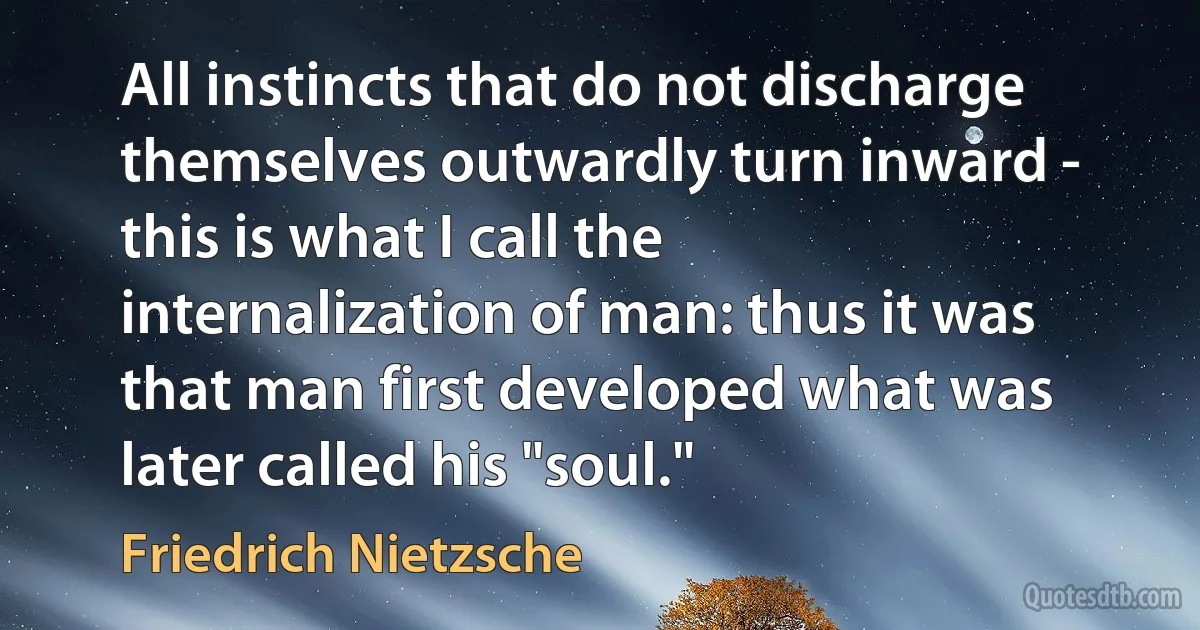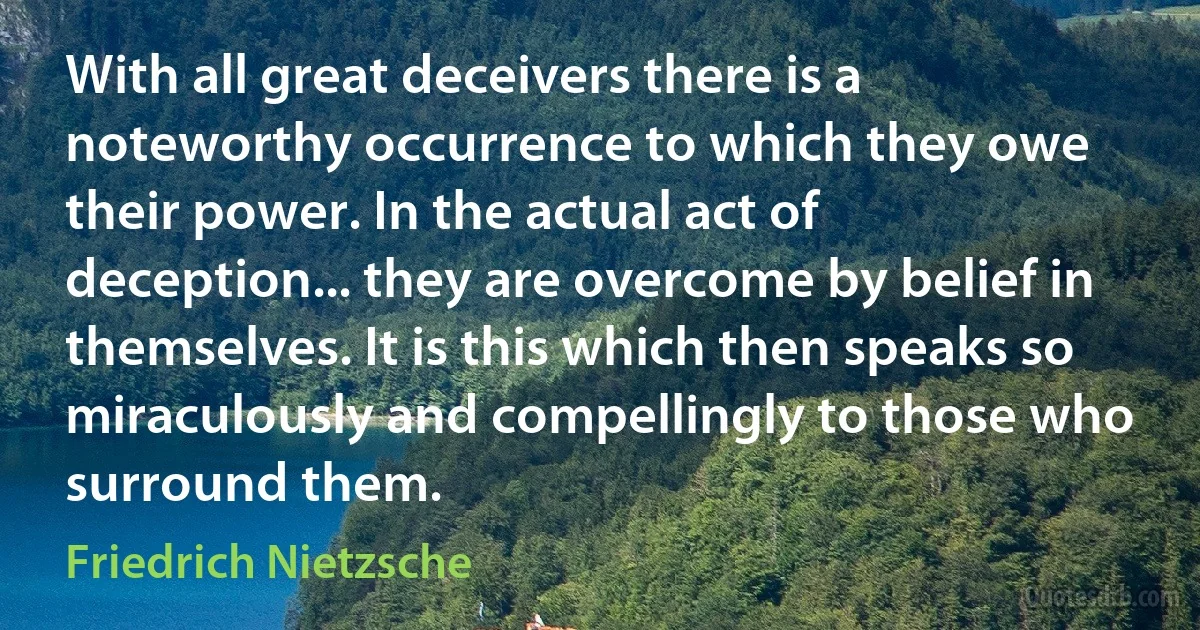Friedrich Nietzsche quotes - page 30
"Grant me, ye gods, but one certainty," runs Parmenides' prayer, "and if it be but a log's breadth on which to lie. on which to ride upon the sea of uncertainty. Take away everything that comes-to-be, everything lush, colorful, blossoming, illusory, everything that charms and is alive. Take all these for yourselves and grant me but the one and only, poor empty certainty.”.

Friedrich Nietzsche
There is only nobility of birth, only nobility of blood. When one speaks of "aristocrats of the spirit," reasons are usually not lacking for concealing something. As is well known, it is a favorite term among ambitious Jews. For spirit alone does not make noble. Rather, there must be something to ennoble the spirit. What then is required? Blood.

Friedrich Nietzsche
Greek tragedy met her death in a different way from all the older sister arts: she died tragically by her own hand, after irresolvable conflicts, while the others died happy and peaceful at an advanced age. If a painless death, leaving behind beautiful progeny, is the sign of a happy natural state, then the endings of the other arts show us the example of just such a happy natural state: they sink slowly, and with their dying eyes they behold their fairer offspring, who lift up their heads in bold impatience. The death of Greek tragedy, on the other hand, left a great void whose effects were felt profoundly, far and wide; as once Greek sailors in Tiberius' time heard the distressing cry 'the god Pan is dead' issuing from a lonely island, now, throughout the Hellenic world, this cry resounded like an agonized lament: 'Tragedy is dead! Poetry itself died with it! Away, away with you, puny, stunted imitators! Away with you to Hades, and eat your fill of the old masters' crumbs!'

Friedrich Nietzsche
These people who have fled inward for their freedom also have to live outwardly, become visible, let themselves be seen; they are united with mankind through countless ties of blood, residence, education, fatherland, chance, the importunity of others; they are likewise presupposed to harbour countless opinions simply because these are the ruling opinions of the time; every gesture which is not clearly a denial counts as agreement.

Friedrich Nietzsche
We imagine that hardness, violence, slavery, peril in the street and in the heart, concealment, Stoicism, temptation, and deviltry of every sort, everything evil, frightful, tyrannical, raptor- and snake-like in man, serves as well for the advancement of the species "man" as their opposite.

Friedrich Nietzsche
The individual itself as a struggle between parts (for food, space, etc.): its evolution tied to the victory or predominance of individual parts, to an atrophy, a "becoming an organ" of other parts. ... The aristocracy in the body, the majority of the rulers (struggle between cells and tissues). ... Slavery and division of labor: the higher type possible only through the subjugation of the lower, so that it becomes a function.

Friedrich Nietzsche
These same institutions produce quite different effects while they are still being fought for; then they really promote freedom in a powerful way. On closer inspection it is war that produces these effects, the war for liberal institutions, which, as a war, permits illiberal instincts to continue. And war educates for freedom. For what is freedom? That one has the will to self-responsibility. That one maintains the distance which separates us. That one becomes more indifferent to difficulties, hardships, privation, even to life itself. That one is prepared to sacrifice human beings for one's cause, not excluding oneself.

Friedrich Nietzsche
Is it not clear that with all this we are bound to feel ill at ease in an age that likes to claim the distinction of being the most humane, the mildest, and the most righteous age that the sun has ever seen? It is bad enough that precisely when we hear these beautiful words we have the ugliest suspicions. What we find in them is merely an expression - and a masquerade - of a profound weakening, of weariness, of old age, of declining energies. What can it matter to us what tinsel the sick may use to cover up their weakness? Let them parade it as their virtue; after all, there is no doubt that weakness makes one mild, oh so mild, so righteous, so inoffensive, so "humane!"

Friedrich Nietzsche
According to the old story, King Midas had long hunted wise Silenus, Dionysus' companion, without catching him. When Silenus had finally fallen into his clutches, the king asked him what was the best and most desirable thing of all for mankind. The daemon stood still, stiff and motionless, until at last, forced by the king, he gave a shrill laugh and spoke these words: 'Miserable, ephemeral race, children of hazard and hardship, why do you force me to say what it would be much more fruitful for you not to hear? The best of all things is something entirely outside your grasp: not to be born, not to be, to be nothing. But the second-best thing for you - is to die soon.'

Friedrich Nietzsche



